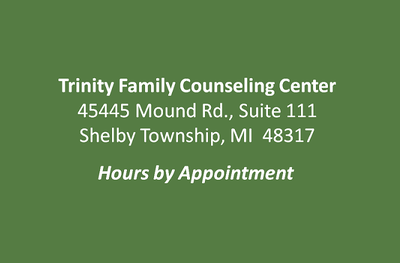Emotional Management
|
Let’s face it—our emotions can get the better of any of us. Anxiety, depression, self-doubt, fear, worry, loneliness, low self-esteem, codependency, and anger are just a few of the emotional demons that rob us of our ability to experience joy, to be present in our day-to-day lives, and to engage with and love others to our fullest potential.
Each of the counselors at Trinity is experienced in helping clients identify and confront their emotional challenges through a wide range of therapeutic approaches. The first step toward change is always to develop an awareness of how your daily experiences trigger and perpetuate your negative thoughts about yourself or others, and then how those thoughts lead to your troubling emotional responses and—often times—inappropriate or unhealthy behaviors. |





